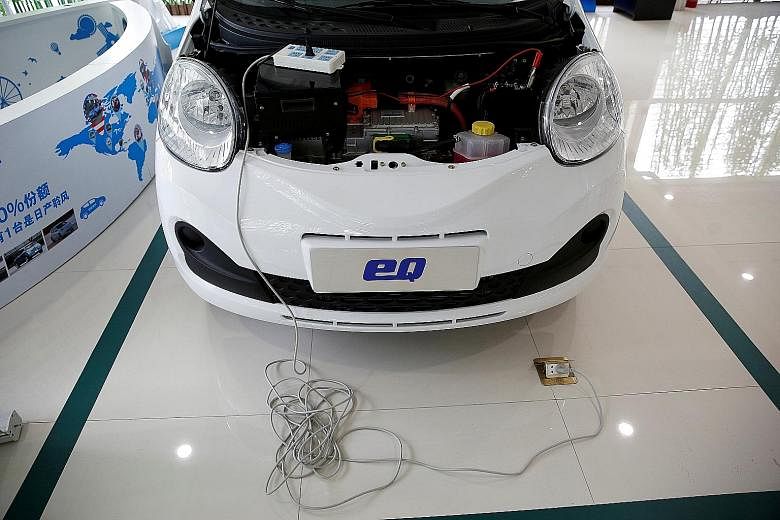Could China, the world's largest automobile market, help address the threat of global warming if it went completely electric?
The answer is not as obvious as it seems.
China has been making great strides towards electrification. Consumers bought more than 300,000 electric cars last year and more than five million are expected to be on the road by 2020.
The government just announced bold plans for a wave of big new battery factories. But the move away from conventional cars and trucks will not immediately reduce the country's carbon emissions.
On the contrary, the production and exploitation of electric vehicles in China actually produce more greenhouse gases and consume more overall energy.
In the short run, China's moves could make greenhouse emissions go up, not down.
Electric vehicles seem environmentally benign. They are lightweight, energy-efficient and potentially greener than their conventional counterparts.
But the reality is more complex. Their manufacture entails energy- intensive mining of rare elements, such as the lithium required for their batteries.
Their fuel efficiency can make up for that in the course of use, but only if the electricity is produced in a relatively clean way.
Developed nations get the best results because they tend to generate electricity using cleaner sources.
By one estimate, the average electric car in the United States has just halved the greenhouse gas impact of a conventional car over its life cycle.
It is even less in the western, southern and north-eastern parts of the country, where power plants draw more renewable power.
A comprehensive energy model being developed by American research centre Argonne National Laboratory produces a similar estimate.
Europe does well too. Norwegian researchers found that electric vehicles offer at least a 10 per cent reduction in greenhouse gas emissions (assuming they were driven about 150,000km).
To be sure, electric-vehicle batteries impose a host of other environmental costs linked to the mining of rare metals. But on carbon emissions, electric vehicles win out.
The real challenge to reducing greenhouse gas emissions will be in developing nations - especially China, which is likely to dominate the global car market. Unfortunately, the structure of the country's industrial economy will make it difficult.
One recent study by Chinese engineers estimated that electric vehicles generate about a 50 per cent increase in greenhouse gas emissions and total energy consumption over their life cycle.
The manufacture of the lithium- ion battery accounts for 13 per cent of the energy consumption and 20 per cent of the emissions.
The most promising ways to make electric vehicles better have little to do with the vehicles themselves. Energy infrastructure matters more.
In China, electricity production still relies heavily on high-carbon sources, including coal.
Hence, both the manufacturing of the batteries and the operation of the vehicle produce more pollution than they would elsewhere.
The recycling industry in China is also underdeveloped. US steel is about 70 per cent recycled, compared with 11 per cent in China.
Electric vehicles can help China reduce greenhouse emissions only in the context of a deeper shift towards renewable sources of energy and greater efficiency.
No one technology alone can create a green revolution.
BLOOMBERG
•Mark Buchanan, a physicist and science writer, is the author of Forecast: What Physics, Meteorology And The Natural Sciences Can Teach Us About Economics.

